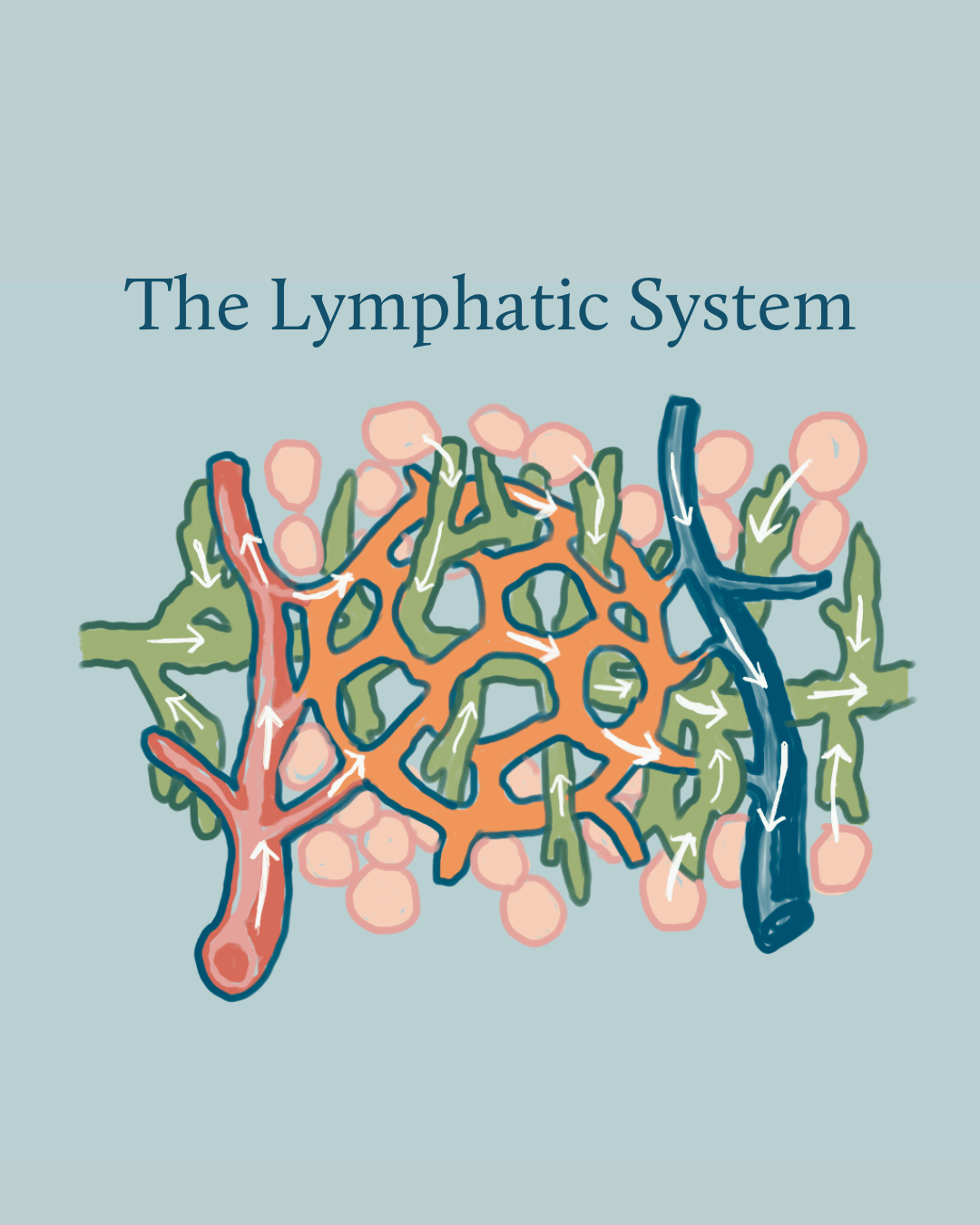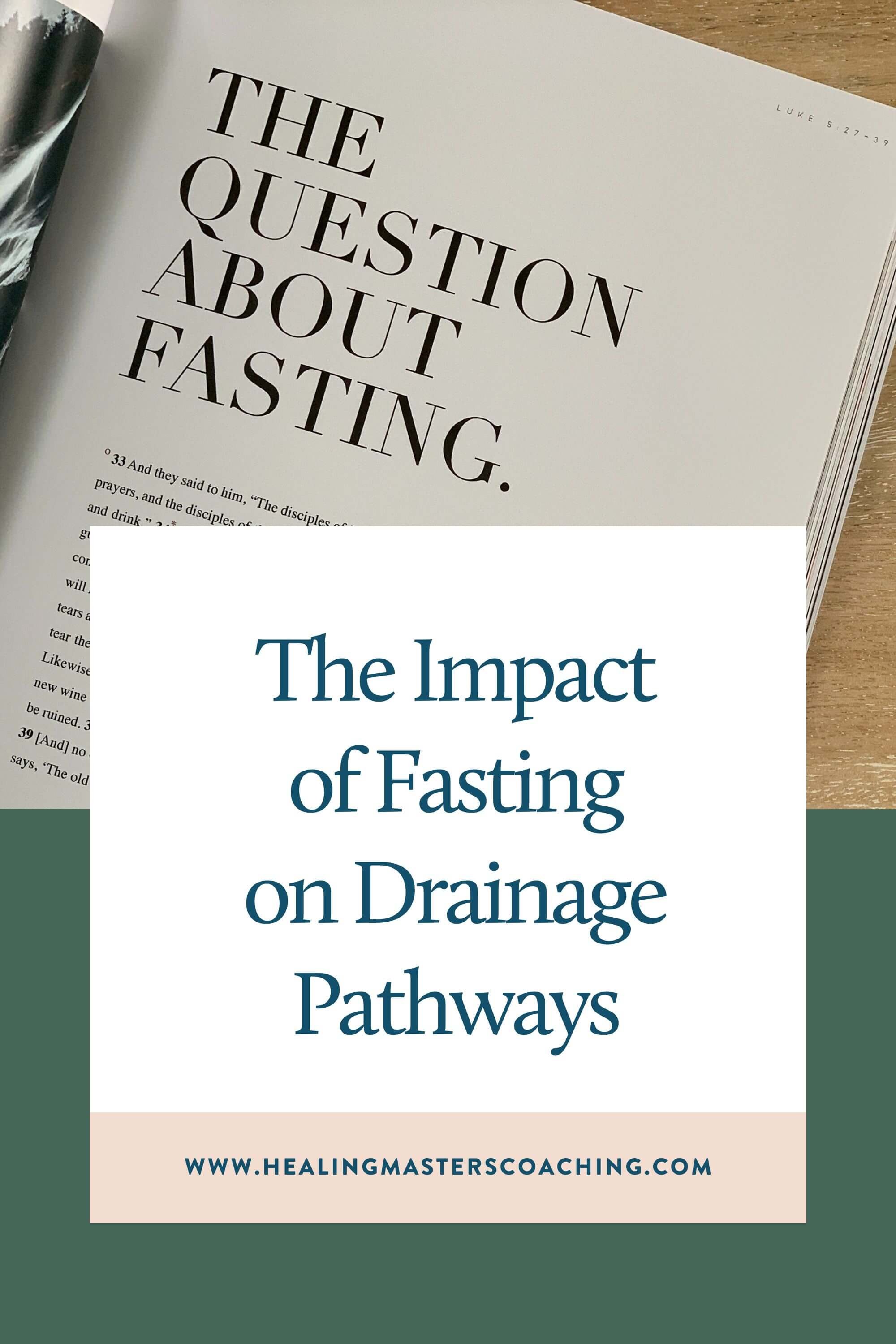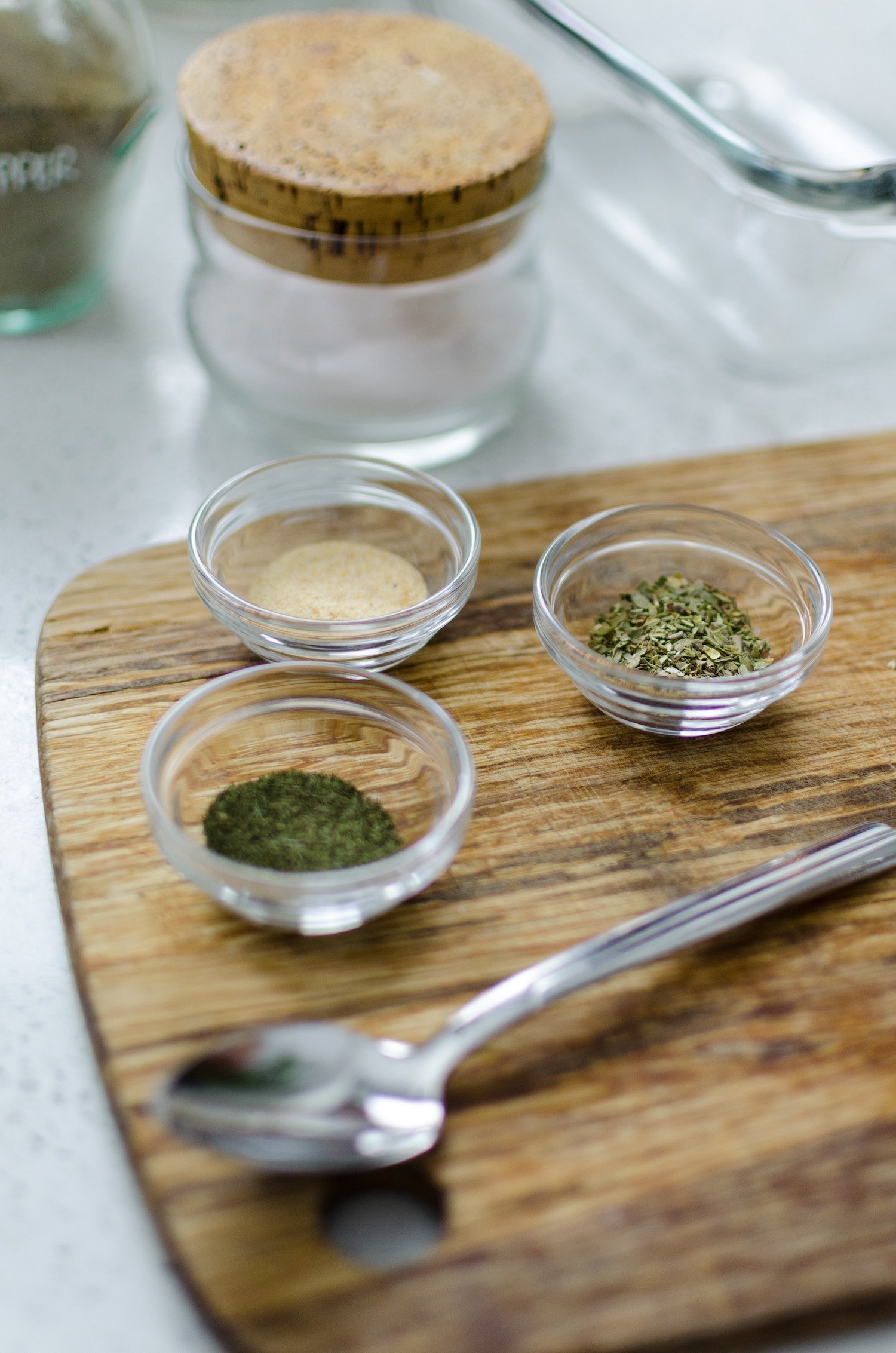How Parasites Clog Your Drainage Pathways
Hello and welcome to our community at Healing Masters! Today, we're going to explore an often overlooked aspect of gut health and overall wellness: the impact of parasites on your body's drainage pathways. It's a topic that might seem a bit daunting at first, but understanding it is crucial for anyone striving for optimal health, especially if you're dealing with gut health challenges, hormonal imbalances, fatigue, allergies, brain fog, or anxiousness.
Understanding Your Body's Drainage Pathways
Before we dive into the world of parasites, let's understand our body's main drainage pathways first - the bile ducts, liver, intestines, and lymphatic system. These are all crucial for eliminating toxins and waste:
Bile Ducts: They transport bile from the liver and gallbladder to the intestine. Bile is essential for digesting fats and helps in the elimination of waste from the body.
Liver: It's your body's primary filtration system, processing toxins and breaking them down to be eliminated.
Intestines: They absorb nutrients and water while also getting rid of waste products.
Lymphatic System: This network of tissues and organs helps rid the body of toxins, waste, and other unwanted materials.
To learn more about the drainage pathways, check out our other blogs:
The Difference Between Drainage Pathways & Detox
A Simple Intro Into Drainage Pathways: The First Step in Detox
A Simple Intro to Drainage Pathways: The Colon
A Simple Intro to Drainage Pathways: The Liver - Part 1
The Liver - Part 2: What Impairs Detox & How to Improve Liver Health
The Impact of Fasting on Drainage Pathways
Parasitic Interference in Drainage Pathways
Now, let's talk about the uninvited guests – parasites, and how they interfere with the function of your drainage pathways. You might wonder how common these parasites are. Surprisingly, they're more prevalent than you might think, even in developed countries like the United States. These parasites can significantly impact the efficiency of our drainage pathways, leading to a myriad of symptoms and health challenges. For this reason, it’s always best to support drainage pathways for at least 30 days prior to embarking on a parasite cleanse. For more information, check out our other blog: What You Need to Know Before Starting a Parasite Cleanse.
1. Ascaris Lumbricoides in the Bile Ducts
Ascaris lumbricoides, a type of roundworm or nematode, is one of the largest and most common parasites found in humans. Adult worms can reach a substantial size. Typically, the females are larger than the males. Female Ascaris worms can grow to about 20 to 35 centimeters (8 to 14 inches) in length, while males are generally smaller, usually around 15 to 30 centimeters (6 to 12 inches) long. They also are much thicker than other worms. The size of these worms can be quite startling, especially considering they live inside the human body, usually in the small intestine. We’ve personally seen them much larger than 14 inches!
Ascaris lumbricoides can migrate from the intestines to the bile ducts, leading to blockages. Due to their rather large size, they can disrupt bile flow by literally blocking the opening of the bile ducts. This impairs fat digestion and waste elimination, and may cause symptoms like abdominal pain, nausea, and maldigestion.
2. Liver Flukes in the Liver
Flukes, belonging to the class Trematoda, are a diverse group of over 18,000 identified species of parasitic flatworms. These species are broadly categorized into two groups: Digenea, which includes well-known liver, lung, and blood flukes, often with complex life cycles involving multiple hosts; and Monogenea, typically ectoparasites living on fish with simpler life cycles. Flukes are found in a variety of environments, infecting different organs in a wide range of hosts, including humans, animals, and fish. Their presence can lead to various diseases and health issues, demonstrating their significant impact on both wildlife and domesticated animals.
Liver flukes are parasitic flatworms, specifically trematodes, that typically infect the livers of various mammals, including humans. These parasites live in the bile ducts and liver of their hosts, causing a disease known as fascioliasis. The infection typically occurs by ingesting water or vegetation contaminated with the larval stages of the flukes. Liver fluke infections can lead to various liver problems and other health issues in both animals and humans. They cause inflammation and obstruction, impacting bile flow and liver function. This can lead to symptoms such as abdominal discomfort and liver enlargement.
3. Worms in the Intestines
Intestinal worms are a group of parasitic organisms that inhabit the gastrointestinal tract of their hosts, which can include humans and various animals. Common types include roundworms (like Ascaris lumbricoides and others), tapeworms, and hookworms. These parasites often enter the host's body through the ingestion of contaminated food or water, or through direct contact with infected soil. Once inside the intestines, they can cause a range of symptoms from mild discomfort to severe health issues, depending on the type of worm and the severity of the infection. Symptoms often include abdominal pain, constipation, diarrhea, malnutrition (by disrupting nutrient absorption and the gut microbiome), weight loss, and anemia. This leads to chronic digestive issues, allergic immune responses seen in mast cell disorders, and increased bodily toxicity, which puts stress on the liver, kidneys, and entire drainage funnel.
4. Strongyloides in the Lymphatic System
Strongyloides, a type of roundworm, primarily infects the intestines but can also impact other systems in the body, including the lymphatic system, though this is less common compared to its primary intestinal manifestations. The most commonly known species is Strongyloides stercoralis, which causes strongyloidiasis. You may also be familiar with strongyloides in the context of your pet and heart worm risk. The infection usually begins when larvae penetrate the skin, often from soil contaminated with feces. Once inside the body, these larvae travel through the bloodstream to the lungs. From the lungs, they move up to the throat, are swallowed, and then reach the intestines where they mature and reproduce.
While the primary impact of Strongyloides is on the gastrointestinal tract, its systemic nature means that it can have broader implications, including on the lymphatic system, especially in cases of heavy infestation or in immunocompromised hosts. When strongyloides affect the lymphatic system, they can cause inflammation and blockages in the lymphatic vessels, impairing the system's ability to drain toxins effectively. This can contribute to a build-up of waste, leading to symptoms like swelling, fatigue, and potentially more serious lymphatic disorders. The presence of the worm often triggers an immune response, leading to an increase in lymphocytes and swollen lymph nodes. As the larvae migrate through the body, they may pass through and potentially inflame or damage the lymphatic vessels. Additionally, intestinal damage caused by the worms can lead to secondary infections that further impact the lymphatic system.
Embracing a Holistic Approach to Recovery
In addressing these parasitic challenges, a natural and wellness-focused approach is key. Supporting the body’s natural detoxification processes and tackling the root cause by parasite cleansing is vital. A lot of people will say you can simply do a full moon cleanse for a week or so and that’s enough. If you are experiencing a myriad of symptoms, it’s a sign you likely have a more serious parasitic overgrowth happening. In this case, it’s best to focus on parasite cleansing for a minimum of 90 days, to make sure you target multiple parasitic lifecycles. Otherwise, they will likely just reproduce and come back as soon as you finish.
1. Dietary Considerations
Focusing on foods that support your drainage pathways is important. To support the body's drainage pathways, include leafy greens, cruciferous vegetables, berries, citrus fruits, beets, carrots, garlic, onions, ginger, turmeric, green tea, nuts, seeds, and plenty of water and herbal teas in your diet, as these foods are rich in antioxidants, vitamins, and anti-inflammatory properties that aid liver, kidney, and lymphatic system function. Staying hydrated is also crucial for maintaining healthy bodily functions, helping to flush toxins out of the body. There are certain foods that help your body fight off parasitic infections too. Foods that can help fight parasitic infections include garlic, onions, pumpkin seeds, papaya seeds, pomegranates, carrots, turmeric, coconut oil, apple cider vinegar, as these contain natural anti-parasitic and anti-inflammatory properties that can boost the immune system and aid in eliminating parasites.
2. Herbal Interventions
Herbal remedies have been used traditionally for centuries in various cultures to treat parasitic infections, and some herbs are known for their anti-parasitic properties. Anti-parasitic herbs like mimosa pudica seed, wormwood, garlic, and black walnut can be effective, but professional guidance is essential before starting any herbal treatment, as these herbs can be potent and may interact with other medications or health conditions. You want a mix of herbs that target the adults, larvae, and eggs, while also enhancing your inner terrain to make you a less ideal host.
3. Drainage & Detoxification Techniques
Supporting the body’s drainage pathways always comes before any detoxification or cleansing regimen. We recommend focusing on supporting drainage pathway health for a minimum of 30 days before starting a parasite cleanse. For more information, check out our other blog: What You Need to Know Before Starting a Parasite Cleanse.
4. Stress Reduction
Managing stress is crucial for effective detoxification. Yoga, meditation, prayers, journaling, talking about your feelings, and breathing exercises can be incredibly beneficial. Cleansing parasites can be highly emotional, so proper self-care is important. Additionally, you may benefit from incorporating some adaptogenic herbs and high quality minerals, to help your body handle the stress it does encounter.
Conclusion: Partnering on Your Path to Health
If parasites are a concern, it's important to work with a healthcare professional who understands holistic health and has experience parasite cleansing personally. They can help develop a plan tailored to your needs, guiding you towards optimal health. Remember, our Healing Masters team is here to support you through parasite cleansing. Make sure to join our email list if you’d like to hear about our upcoming parasite cleansing resources and one-on-one programs.
Curious to learn more about parasites and their impact to your health? Check out our other blogs.
What You Need to Know Before Starting a Parasite Cleanse
Parasites: The Foul Little Things That Could be Causing your MCAS
Note: This blog is intended for informational purposes only and is not a substitute for individual professional medical advice. Consult your healthcare provider for personalized advice and treatment.
Overcome Your Chronic Symptoms & Hypersensitivities
Are you looking to get to the root cause of your symptoms? We can help you.
We use holistic approaches and functional medicine lab testing to investigate what is triggering your chronic symptoms so you can address them at their source and start to feel better faster. Our health coaches are masters at guiding the healing of multiple root causes in a personalized order that gets you wellness results that last. We also help you maintain good health and minimize your disease risks.
by sarah southerton
Certified Integrative Health Practitioner (IHP2) & Functional Medicine Health Coach
Sarah helps clients overcome gut, hormone, and immune dysfunction by addressing the root causes across the physical, emotional, and energetic layers of healing—restoring balance from the inside out. Her holistic yet science-backed approach blends functional lab testing, detoxification, and emotional healing to create lasting transformation. Once a chronic illness warrior herself, Sarah now leads Healing Masters as an integrative practitioner and wellness educator, helping others get unstuck, restore energy, heal deeply, and feel whole again.
Disclaimer: The information on this website is for general information purposes only. Nothing on this site should be taken as healthcare advice for any individual case or situation. This information is not intended to create, and receipt or viewing does not constitute, an healthcare professional-patient relationship. We do our best to keep information accurate and up to date, however mistakes do happen, and we cannot make guarantees regarding the accuracy of our information. We are not liable for any information on this website or your reliance upon it.
































